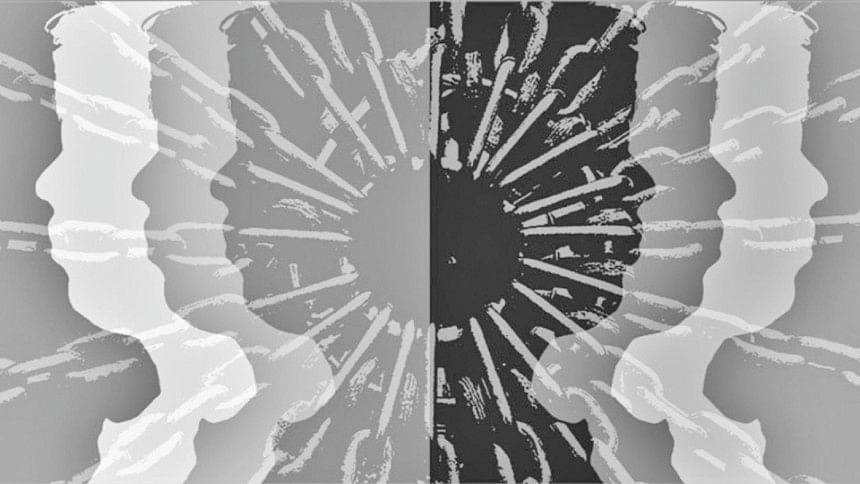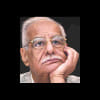Segregation in democracy

Yet another Dalit family was hacked to death because the members were suspected to have eaten beef. The laboratory tests of the "beef" showed that it was the meat of some other cattle. Some time ago, the Kerala House in Delhi was attacked by gau rakshks because beef was served there. But the most shameful aspect is that there was no repentance among the upper caste, and even the leaders of the RSS, who are supposed to work for social upliftment did not utter a word of either condemnation or sorrow.
All religions indulge in social, economic or political discrimination but it is not the part of the religion itself as it is among the Hindus. And for centuries, it is going on without much challenge. There are still certain parts of India where the Dalit cannot use roads or wells that are frequented by the upper caste. The worst part is that the funeral ground which the upper caste use is exclusive for them.
Islam which teaches equality has also been affected. In fact, an ordinary Muslim suffers from both sides - one because he is poor and, two, because he is considered not at par with the well-placed Muslims. Here the economic factor has come into play. And then it has become mixed with preferences and prejudices, making the poor Muslims' plight still more pitiful. True, the Indian Constitution does not allow discrimination on the basis of religion. But it is practiced all over and even the police force has come to be contaminated as it connives at the violations of the upper caste without a demur.
The practice has become more glaring and persistent since the advent of the current government. That the upper caste people have been appointed to key positions in universities and other institutions at the behest of the government make some of the best brains rot. The RSS makes sure that the people appointed are from the "right" background to ensure that the Hindutva philosophy is taken as the guideline.
Not long ago, the Pune Film Institute went on strike for months when its head was replaced by a television artiste who had the blessings of the RSS. The government did not change its decision even in the midst of widespread discontentment. Ultimately, the students had to give in because their career was at risk.
Time has come for introspection. The upper caste has not accepted the presence of Dalit or even members of other backward classes in their midst. The numerous agitations in Gujarat, Uttar Pradesh or, for that matter, in other parts of the country have not jolted the conscious of the upper caste. These are the results of the government continuing with reservations, despite the 10-year time-limit set by the Constituent Assembly way back in 1950.
I recall the time during the debates of the Constituent Assembly when Dr B.R. Ambedkar, a revered Dalit leader, declared that they did not want any reservation. He was persuaded by the assurance that the period will not be more than 10 years. Now the situation is such that as soon as the period is over, Parliament unanimously extends it to another 10 years. No political party, including the communists, has stood up to resist and say enough was enough.
Now that elections in Uttar Pradesh, the largest state in the country, are scheduled to take place in 2017, Dalit leader Mayawati is being wooed by all political parties. She has said that her party would go at it alone and there is every possibility that she might return with a majority. Her advantage is that the Dalit voter obediently follows her instruction. She is the only one who can get the Dalit votes transferred to some other community. Even though the Congress has traditionally fought for social justice, Mahatma Gandhi was the only leader who believed in giving equal status to the Dalits. True, they did not like the title "Harijan" (son of God) given by him because they thought it was too patronising.
Dr. Rajendra Prasad, after finishing his task as the president of the Constituent Assembly, was appointed as the food minister. He went to Gandhiji to seek his advice on his accommodation. The Mahatma, who was living then in a bhangi (sweeper) colony told him to live in the cottage next to the one he was residing. Dr. Rajendra Prasad was so horrified over the idea that he went to the then Prime Minister Jawaharlal Nehru, and complained about Gandhiji's suggestion.
No legislation is going to help, as has been India's experience. Ultimately, it depends on the upper caste to change its attitude. They believe in democracy but not in equality which is the integral part of the system. People in the world find it difficult to believe that the country which has sent a rocket to Mars - something which even advanced countries envy - practice discrimination against fellow human beings. It shocks outsiders when they learn that a democratic country where people queue outside the ballot box to elect their leader, cannot get over the prejudice which they have inherited from an era even before the British, who divided the society caste-wise and religion-wise to make their rule easy.
Any action taken by the Parliament to eliminate this malady will not help until the upper castes realise that what they are doing is against the democratic polity of India. The sooner the realisation, the better it would be for the country and its polity.
The writer is an eminent Indian columnist.

 For all latest news, follow The Daily Star's Google News channel.
For all latest news, follow The Daily Star's Google News channel. 



Comments